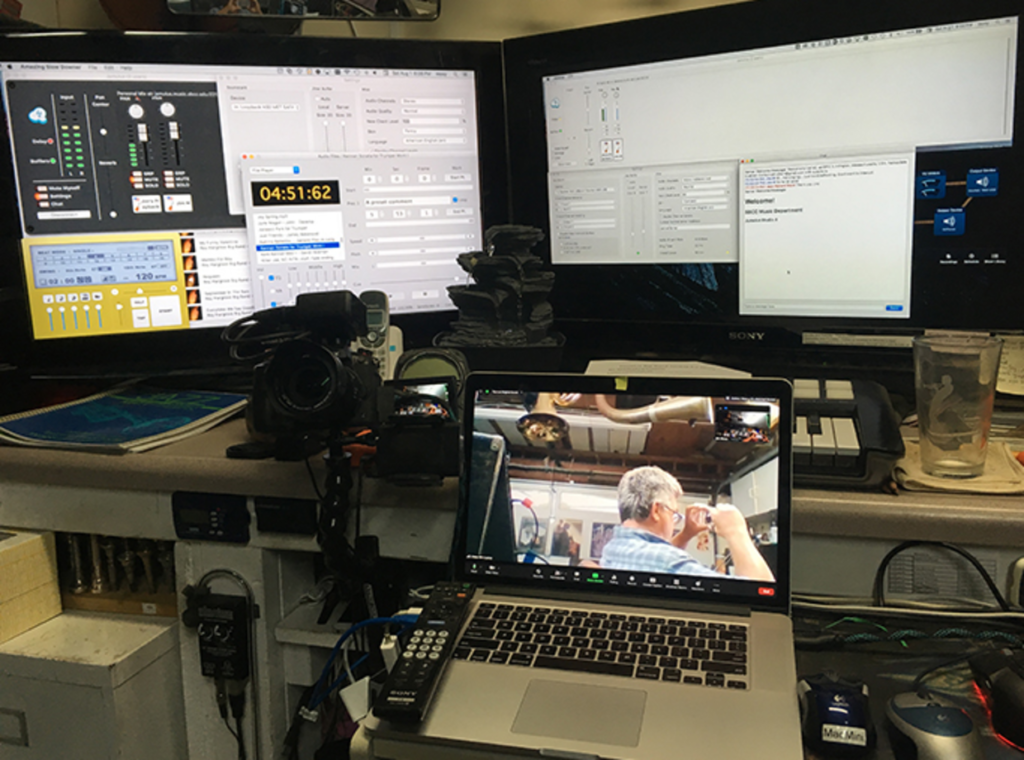SANTA BARBARA — From the moment last March when SBCC made the decision to move all instruction online for the remainder of the Spring semester, the Music Department knew it had better prepare for the situation to extend into the Summer and Fall terms as well.
Fortunately, it already had several courses – Music Appreciation, World Music and History of Rock – that had been working in the online environment for years. The instructors for those courses were extremely helpful with the planning to move all music courses online.
The wildly popular Summer Jazz program was the first to move quickly to get training and prepare. Assistant professor James Mooy was able to secure a major grant for the project and program director Tony Ybarra was able to get world-renowned jazz artists to give weekly master classes and presentations to the students. These included Ted Nash, John Patitucci, Kei Akagi and Chalo Eduardo, and many more. The program was an overwhelming success.
In the meantime, the rest of the faculty worked night and day to figure out how to teach their classes remotely. Like every music teacher of hands-on vocal/instrumental techniques and ensembles in the nation, they asked themselves, “How do we do this online?”
The directors of SBCC’s jazz bands and combos, symphony orchestra, concert band, chamber ensembles and all of the choirs set about learning new technologies and testing different platforms to make some kind of online performance possible. They began working up virtual choirs, orchestras and other ensembles where participants are able to record their own part of a work in a safe environment. The director is then able to put them together (with much practice and many hours) into a cohesive piece of music. Eric Whitacre, the choral composer, has become famous for creating the first “virtual choir.”
The move to the virtual world has not been without its problems, however, according to Mooy.
“The internet was built for reliability, not for real-time speed,” he related in a recent interview. “Even bouncing a signal to my neighbor’s computer involves the message travelling down to Irvine before arriving back is Santa Barbara. With the help of Cox Cable and SBCC’s outstanding IT department, we were able to set up a server for Jamulus [the technology they are using] on SBCC’s main campus. It will host six virtual rehearsal spaces with the largest space able to accommodate 50 connections.” He added, “James Watson [Music Department Aide] and I have been in communication with the software developer in Germany and are excited to be the first institution in the world to attempt this with an ensemble of 20 performers.”
Music Department Chair Nathan Kreitzer praised the work of his colleagues saying, “While obviously not the same as performing together on the same stage for our usual audience, it can still give our musicians a sense of belonging and of working towards a common goal.”
All 70 Music courses scheduled for Fall are ready and set to go online when the semester starts Aug. 24.

